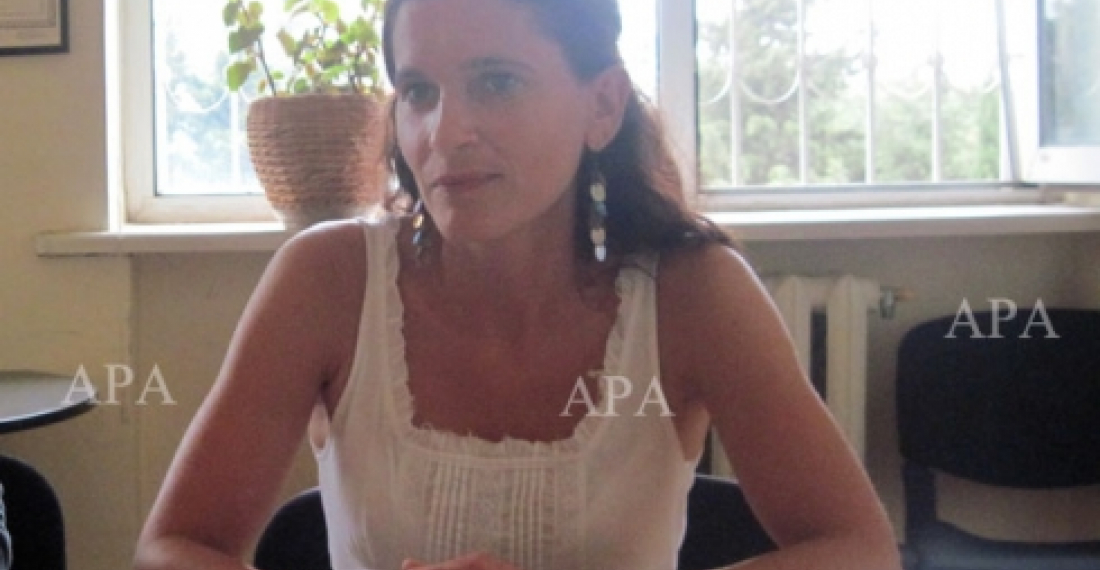The Protection Co-ordinator of the International Committee of the Red Cross (ICRC) in Azerbaijan, Sylvie Graenicher, said whilst speaking to journalists in Baku that the ICRC is currently implementing a joint project with the British Red Cross in support of communities living on the conflict front line.
According to the official, this project is implemented in seven communities of Aghdam, Fuzuli and Terter region. The purpose of this project is to support the guarantee of economic security of poor families living in those villages. The project is implemented under the auspices of local departments of Azerbaijan Red Crescent Society. The work is being conducted on the improvement of water use of people living in these territories. This project will be extended next year to cover other communities.
picture: photo of ICRC Protection Officer in Azerbaijan Sylvie Graenicher (courtesy of APA)
source APA







